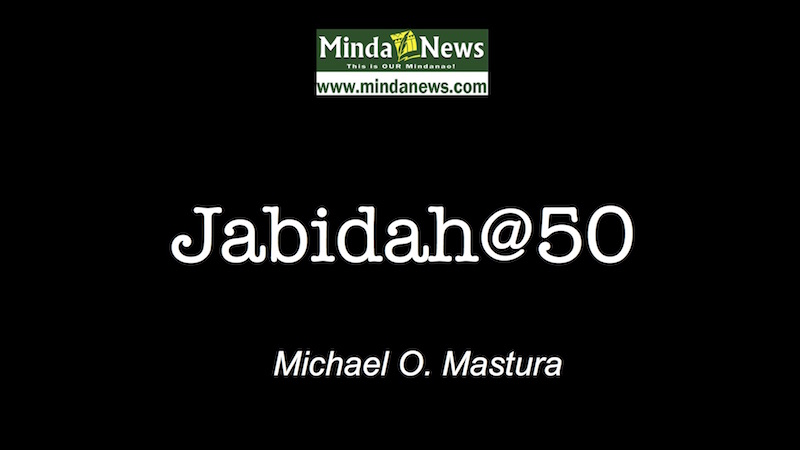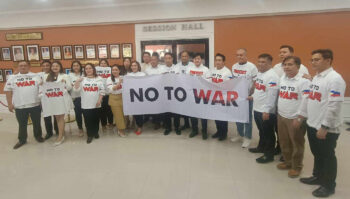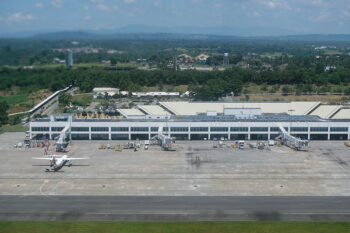
COTABATO CITY (MindaNews / 17 March) — Fifty years after the Jabidah Massacre, the struggle for self-determination under organized Moro Fronts endures. Is there a way to single out one particular item for its impact on policy today?
Congress made a serious congressional inquiry into the Jabidah Massacre, making that singular event a high politics issue. Why is there no end in sight to the nature of the solution to the five decades of troubles it triggered?
There are several factors at work now, two generations after that event. A single-issue interpretation earned cumulatively at the negotiating table is Bangsamoro identity but their political status remains undefined for constitutional accommodation. Layers of issues beyond the reach of short-term strategy weigh in within the context of historical injustice, passing a Bangsamoro Basic Law, shifting to federalism, preventing and addressing violent extremism.
Indeed, rebuilding Marawi in the 2020s is seen as a repetition of the Jolo reconstruction in the 1970s. According to this internal-conflict interpretation, Jabidah Massacre and Mamasapano Massacre underpin the totality of relations which Muslim Mindanao has with the rest of the Philippines on one hand, and at the heart of the question is the relations between the Bangsamoro and the Republic on the other hand.
Each of the Moro National Liberation Front (MNLF) and the Moro Islamic Liberation Front (MILF) armed struggle has been researched and analyzed. Why have assumptions of strategic studies not shown the way forward? The important questions are asked about harsh reality of Moro front leadership shortcomings that impact on the nature of community divide in Mindanao. One clue to the reason for rejection of BBL is that exclusive leadership is a non-starter on the problem of violence and how best to meet it.
My experience for seventeen years from 2000 to 2017 at the negotiation table suggests that internal-conflict interpretation begins to outlive its usefulness at the implementing stage of law-of-peace agreement aspects. No matter what broader framework reached there would be still be tensions once the external actors are left out in the final settlement. A narrative of comparable events elsewhere does not answer which external actor is responsible for troubles in Mindanao?
A form of power-sharing document with a Bangsamoro dimension that is structured on asymmetric relations pointing to a way for union yet raising constitutional questions has been articulated in the Memorandum of Agreement on Ancestral Domain (MOA-AD). This is a new concept. Shared authority does not have to be fifty-fifty deadlock. There’s a tradition in the academic literature to elaborate this point addressing a clash of identities. Some of the imbalances actually developed from deliberate discrimination by the national government. There are other twists to the argument in that local governments were gerrymandered from the territory of traditional Muslim provinces under martial law.
And the only way our draft proposal could be made attractive to the island provinces of the Sulu archipelago and to mainland provinces in Muslim Mindanao is in an innovative form of canton federalism. The carrot is not continuing dependency on Internal Revenue Allotment (IRA) but financial equalization of block grant under a federal grants commission.
In retrospect, we have to draw attention to factors that have recurred.
If a new generation of Bangsamoro leaders can draw lines between violent political ends and the parliamentary cause that has changed their lives, then, it is a non-military reality ready to offer solutions to any of our problems.
(MindaViews is the opinion section of MindaNews. PeaceTalk is open to anyone who wishes to share his/her thoughts on peace in Mindanao. Datu Michael O. Mastura was a member of the 1971 Constitutional Convention and Representative of the 1st district of Maguindanao from 1987 to 1995. He was also a senior member of the MILF peace panel. He is President of the Sultan Kudarat Islamic Academy)
READ ALSO:
PEACETALK: Spur of Duty or Duty to Do Justice?
Q and A with Jibin Arula: 41 years after the Jabidah Massacre (1)







